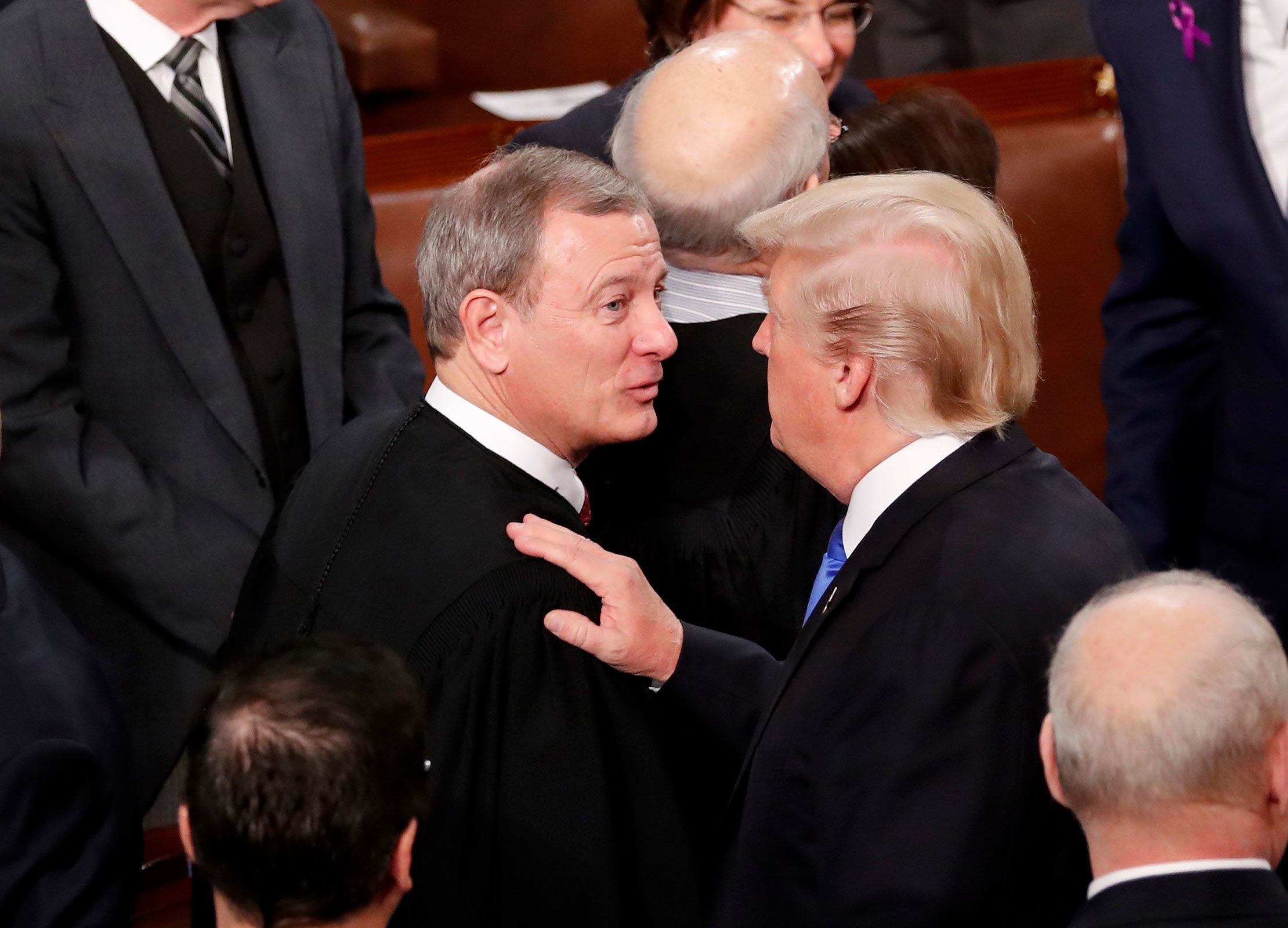In a historic Supreme Court session that lasted nearly three hours, Chief Justice John Roberts made his stance clear on several points. He indicated that the lower court’s decision, which stated that former President Donald Trump does not have absolute immunity, will not be upheld as it currently stands. He also emphasized that the court cannot solely depend on the good faith of prosecutors. However, he remained noncommittal on the full merits of the case, keeping his cards close to his chest.
Roberts’ strategy of withholding his stance may provide him with more flexibility as the nine justices begin to negotiate the decision. Based on the signals from Roberts and other justices, it appears that a majority may reject Trump’s broad immunity claim and find potential criminal liability for former presidents who committed criminal acts while in office.
Conservative Supreme Court May Offer Trump a Lifeline
Despite potential losses on constitutional grounds, Trump may benefit from the practicalities of avoiding accountability for charges related to the 2020 presidential contest before the 2024 election. This could be seen as a favor from the conservative-leaning Supreme Court.
The tone of the arguments contrasted sharply with the sentiment of lower court judges who had previously heard Trump’s claim. Roberts and the conservative wing focused on the potential for political retaliation against a former president, steering clear of the specifics of the allegations against Trump.
Roberts’ Influence in the Supreme Court
Roberts, sitting at the center of the bench with several conservative hardliners to his right, holds significant sway. In closely divided controversies, he can hold the deciding vote. Moreover, as chief justice, he has the power to determine who writes the opinion when he is in the majority. In past high-profile disputes involving Trump, Roberts has often written the opinion himself.
Despite his conservative leanings, Roberts has sometimes sought to distance the high court from the polarizing figure of Trump. He may be reluctant to write an opinion that appears to hand a victory to the former president, which could be used in future campaigns.
Concerns Over Retribution Against Former Presidents
The dominant theme of the session emerged when Michael Dreeben, representing special counsel Jack Smith, took the stand. The justices voiced concerns about potential retribution against a former president, instigated by a new administration and overzealous prosecutors. This concern overshadowed any worries about the current indictment of the presumptive GOP presidential nominee or his potential threat to democracy.
Whenever Dreeben tried to return to allegations of fraud, obstruction, and other crimes against Trump, conservative justices dismissed them. This exchange highlighted the court’s focus on the potential misuse of power rather than the specific allegations against Trump.

